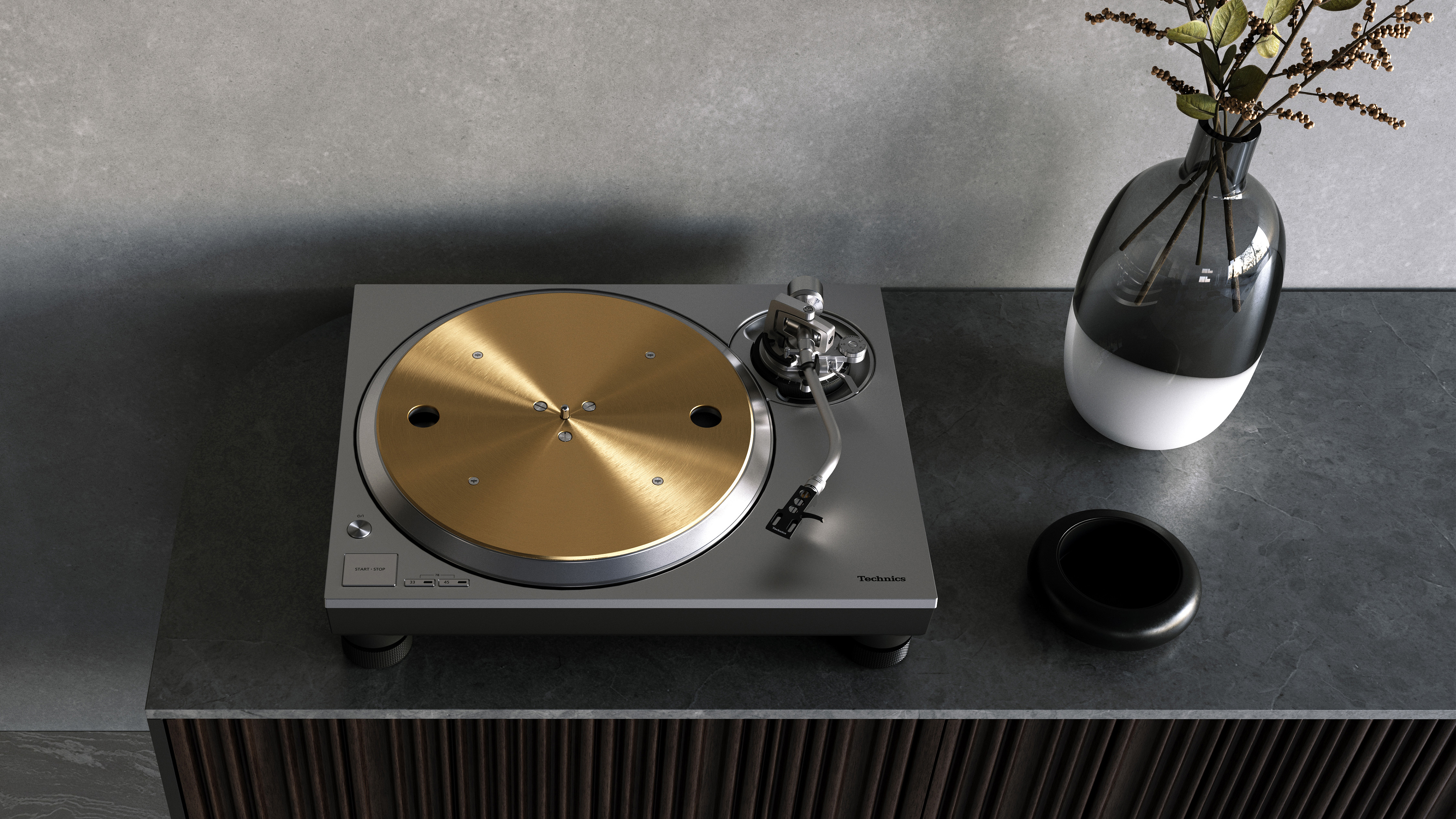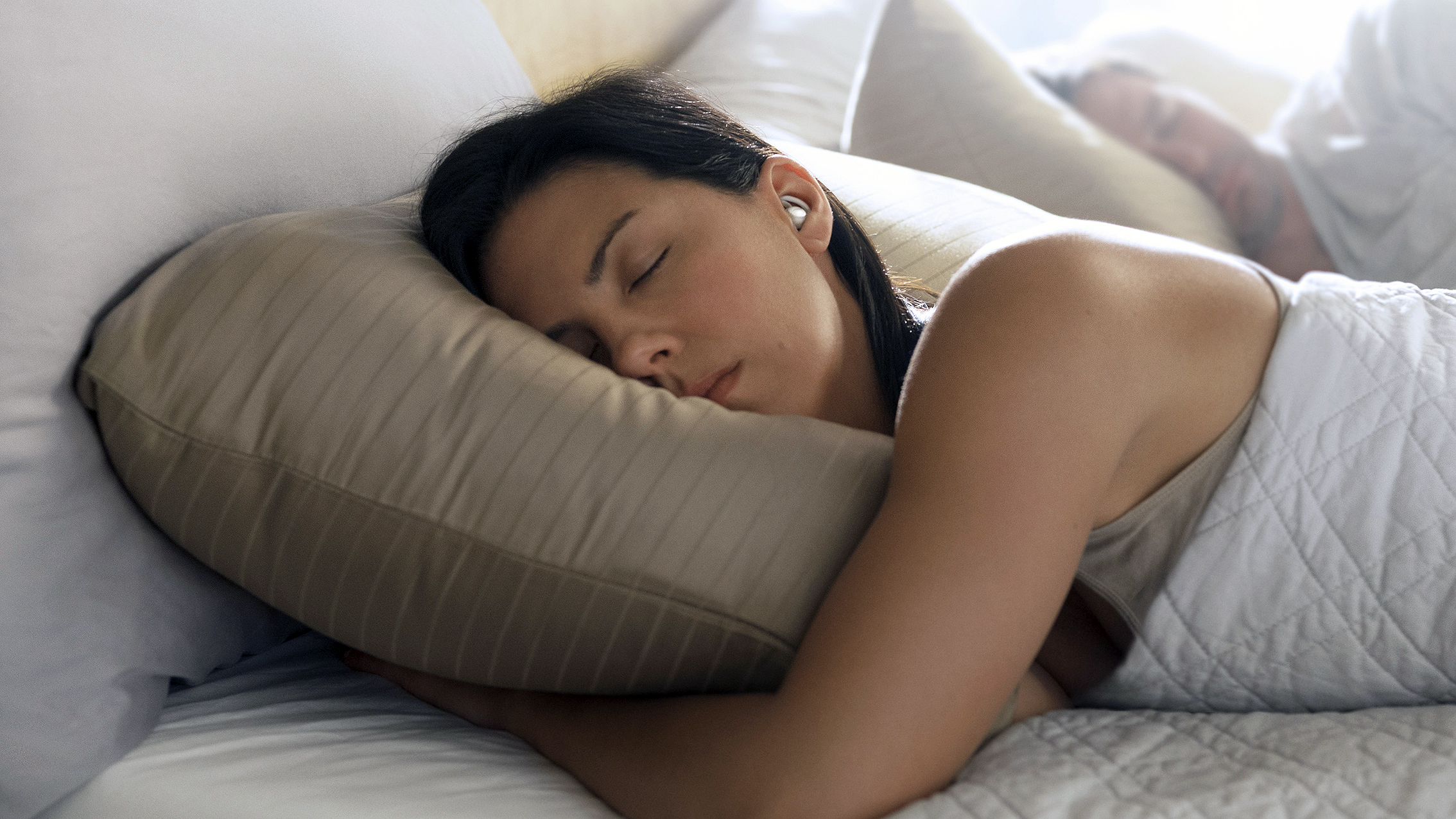
Ironically, given that it's meant to be all about tranquility and restfulness, the most notable thing about Bose’s Noise-Masking Sleepbuds is the sheer, full-throated hysteria that has surrounded them.
Bose took the still unusual step (for an established brand) of using crowdfunding to launch the buds making its Indiegogo goal with understandable ease last November. Presale units sold out in six days, and the $450,320 raised smashed Bose’s $50,000 target by a cool 901%.
Early-bird prototypes were shipped to Indiegogo backers for testing in April, with some promptly appearing on eBay for up to $800. Yes, you read that right. Eight. Hundred. Dollars. (or Six. Hundred. Pounds.) For a pair of snazzy earplugs. Now, they're going on sale in the more conventional way, for somewhat less – £229 – with the UK roll-out in a few months.
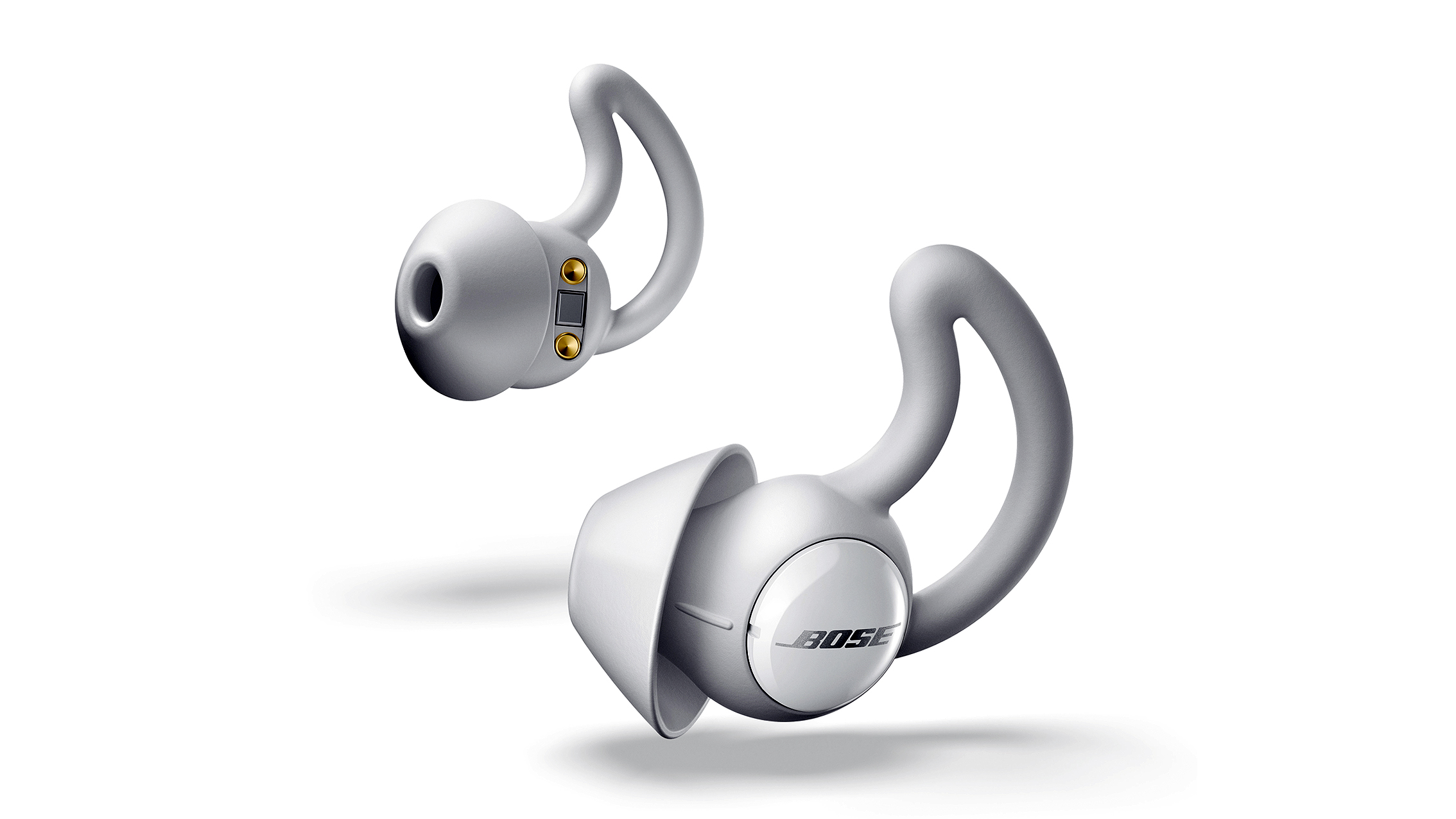
“It was preposterous. It was fast. It was beyond any expectation we had,” says Martin Dluzansky, Bose’s Creative Director for Product and Communication Design, pondering Bose’s first crowdfunding foray at the Sleepbuds’ launch in New York on Wednesday. “But I think it told us that our instincts – about the need for a really effective sleep product – were accurate, and that we were potentially on to something really big.”
More commonly known for its commercial-grade headphones and speakers, Bose’s recent pivot towards sleep aid technology is not the leftfield move it might seem at a glance. In fact, with sleep tech tipped to be an $80 billion market by 2020, it’s very sensible. Improving your sleep is the next big trend in ‘wellness’.
Having recently acquired Hush, a San Diego startup that created the “world’s first smart earplugs”, and helped lay the foundations for the Sleepbuds, Bose now finds itself waking up to a bold new world. Instead of wireless headphones and Bluetooth speakers, this one’s populated with white noise machines, smart pillows and sleep-tracking wearables.
At the launch, I’m pelted with the sort of terrifying, sleep-based statistics that'll keep you awake at nights.
Sign up to the T3 newsletter for smarter living straight to your inbox
Get all the latest news, reviews, deals and buying guides on gorgeous tech, home and active products from the T3 experts
Such as the 24% spike in heart attacks that occurs on the first day of daylight savings each year. Or that 60% of the world’s adults struggle to fall, or stay, asleep, with 79% of us getting fewer than seven hours kip per night. Citing US health protection agency data, Bose exec Ken Jacob points out that, “not getting enough sleep is linked with many chronic diseases and conditions that threaten the nation’s health… heart disease increases, so do strokes, diabetes, high blood pressure, cancer, Alzheimer’s and accidents.”
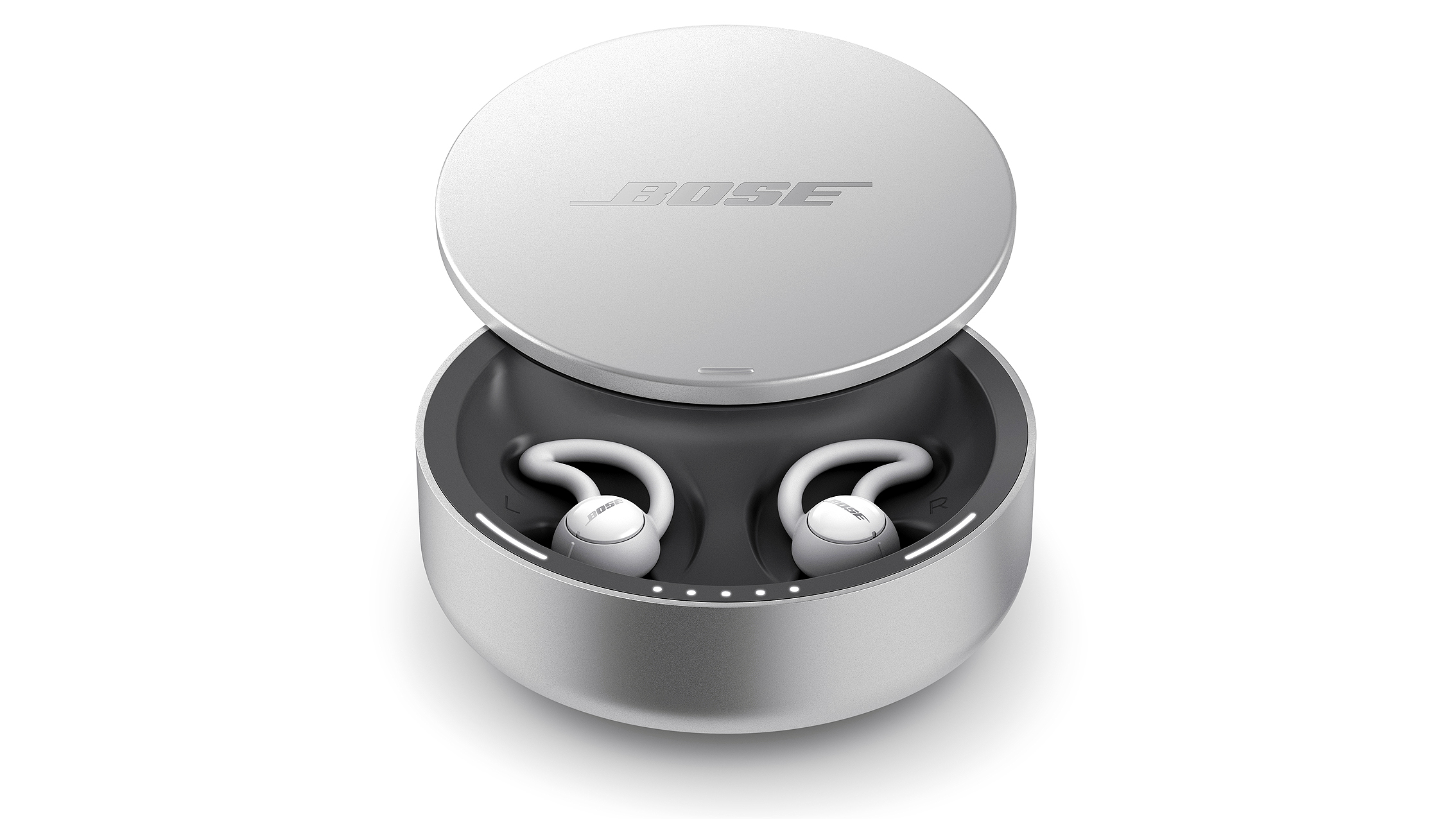
While the presentation was rooted in fact and not weaponised scaremongering, it did stir the sort of emotions that might cause someone to bid $800 for some prototype Sleepbuds.
Bose’s answer to this bad-sleep epidemic is a pair of tiny, true wireless earbuds. As part of the original Indiegogo pitch video, Bose’s Brian Mulcahey (Director, Emerging Business) said “I really believe that, with this solution to this really massive problem, we’re going to change millions of people’s lives. It’s that simple.”
So, what are they like?
Tiny and light buds = long and deep sleep?
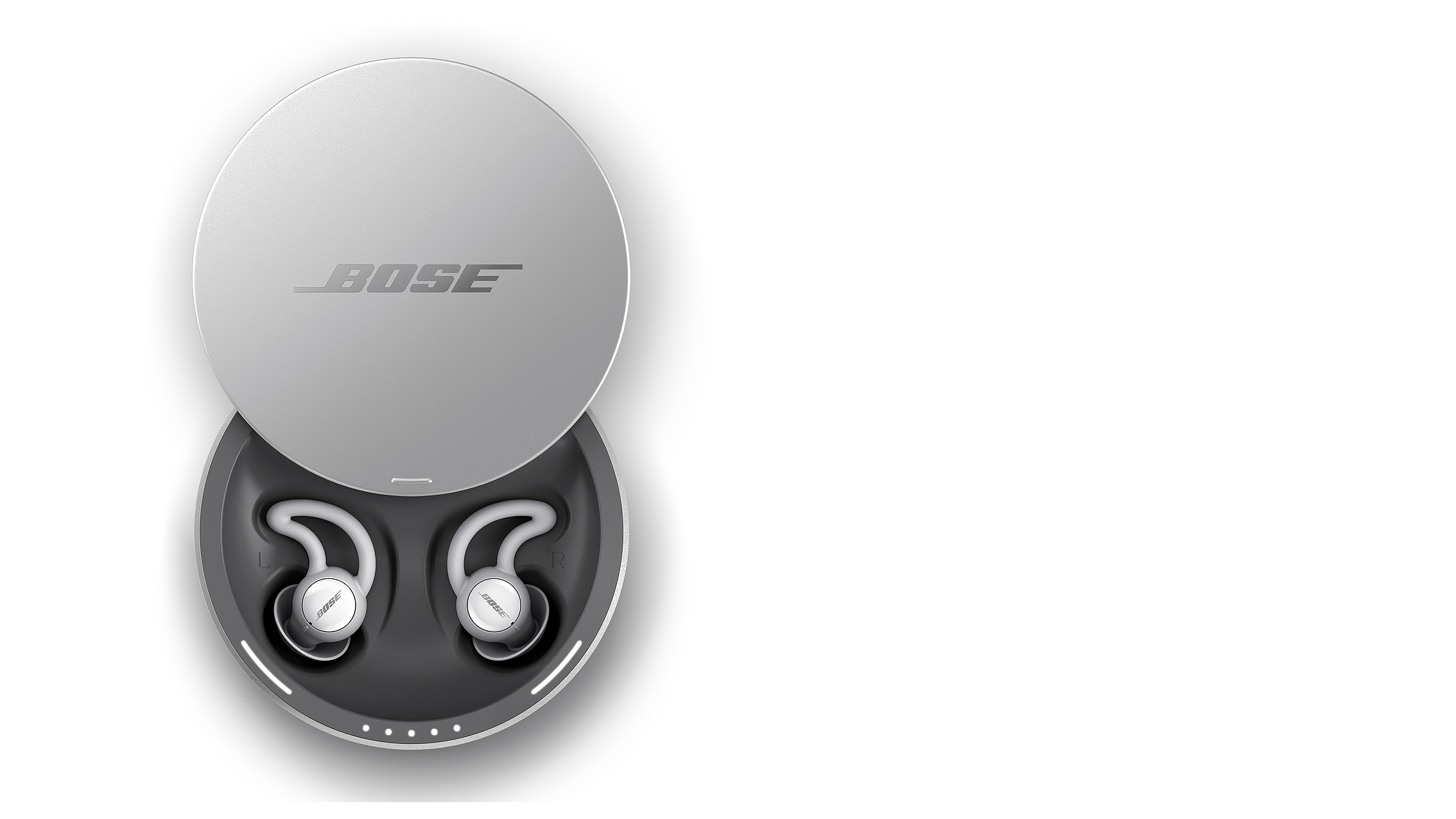
Half the size of a penny (1cm x 1cm) and almost entirely weightless at just 1.4g, the Bose Sleepbuds vow to “block, cover and replace” the type of sounds that kybosh a good night’s slumber – your car horns and meowing cats and talky neighbours with zero self-awareness.
Rather than incorporate Bose's famed noise-cancelling tech – I’m told this would make for a bigger, bulkier product, and also not eliminate certain commonplace night-time frequencies – the Sleepbuds instead utilise new, noise-masking tech.
“It’s more than ambient sound or white noise,” says Bose engineer Daniel Lee. “You can’t achieve it by simply turning up the volume on calming songs. And depending on the situation, it’s more effective than active noise-cancelling – even ours.”
Instead of streaming music (which, again, would equal bigger buds), the Bose Sleep app is packed with 10 soothing soundtracks stored locally in the buds. You can set these to play for a set duration and then shut off, or continuously until you wake up. A further inspired addition is the in-ear alarm, capable of gently rousing the wearer without waking whomever they’re sleeping next to.
Housed within the teeny electronic housing is a rechargeable battery that lasts a claimed 16 hours on a single charge, a microcircuit board and minuscule transducer. On the outside there’s a laser-etched antenna, plus the StayHear+ Sleep ear tips, which come in three sizes. The Sleepbuds’ charging case makes the product travel-friendly, as does its ability to provide one additional full charge when unplugged.
Bose Sleepbuds review: early verdict
Upon getting my hands on a pair, my very first thought is obvious, yet bears repeating: they really are fantastically tiny and light. Placed in the ear, they’re super comfortable and, without wishing to parrot a famous Ned Flanders-ism, it feels like I’m wearing nothing at all.
Led into a mood-lit faux bedroom for a hands-on demonstration, I recline on a chaise longue. Lying cosily on one side, I can scarcely feel the buds even when I press my cheek into the pillow. Next, a variety of night-time annoyances are piped through speakers, meanwhile in my ears are the Bose app’s relaxing tones. First up is ‘Swell’, and its familiarly calming ocean sounds, which confronts the hum of a busy city. Then comes ‘Downstream’ up against some noisy neighbours and, lastly, ‘Rustle’ vs. a baritone snore.
The entire demo is five minutes max, and suffice to say I didn’t nod off in that time.
What I can say is that the sound masking qualities of the Sleepbuds seemed highly impressive even though not 100% effective. While Bose had suggested that background noises would be rendered “inaudible”, they were actually still faintly present, but intermingled with the faux-natural soundtrack – the resulting, layered symphonies were slightly reminiscent of Brian Eno.
Anyone expecting thimble-sized ear defenders that totally block out noise will need to look elsewhere, but my initial feelings are positive. I'll be back with a more comprehensive review after a few weeks of sleeping with my new best 'buds.
On sale in the US from 21 June for $249, expect Bose’s Sleepbuds to hit the UK in Autumn. What price a good night’s sleep? In this case, £229.
